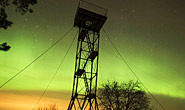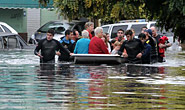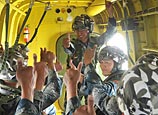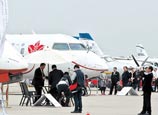
WASHINGTON, April 17 (Xinhua) -- Orbital Sciences Corp., one of two private companies that currently hold a contract with U.S. space agency NASA to fly unmanned cargo missions to the International Space Station, called off the planned test flight of its Antares rocket on Wednesday.
The launch abortion came about 12 minutes before the rocket's planned 5 p.m. (2100 GMT) liftoff from NASA's Wallops Flight Facility on Wallops Island, Virginia.
"The launch of Orbital Sciences rocket ... has been scrubbed for today," said NASA via its official Twitter account. "No determination has been made for future attempts."
It said the delay was due to "a premature separation of an umbilical connection on the second stage" of the two-stage launch vehicle.
Orbital said its team "is gathering more information and will make the call when we will make our next attempt."
The Antares test flight, which carries a simulated payload, is the first of two missions Virginia-based Orbital is scheduled to conduct in 2013. The company had originally planned to carry out a full flight demonstration of its new Antares and Cygnus cargo delivery system to the space station around mid-year.
Orbital signed a 1.9-billion-U.S.-dollar deal with NASA to fly eight unmanned supply missions using the Antares and Cygnus cargo delivery system.
Another U.S. company, California-based SpaceX, made history when its Dragon spacecraft became the first commercial vehicle in history to successfully attach to the space station in a May 2012 test flight.
Dragon has already made three trips to the space station and it still needs to complete another ten to fulfill its 1.6-billion- dollar contract with NASA. The next SpaceX cargo run is scheduled for September.
Before Dragon's liftoff, flights to the space station have always been a government-only affair. Until their retirement, U.S. space shuttles carried most of the gear and many of the astronauts to the orbiting outpost. Since then, American astronauts have had to rely on Russian capsules for rides.
NASA is looking to the private sector, in this post-shuttle era, to get American astronauts launching again from U.S. soil. It will be at least four to five years before the country's private operators are capable of flying astronauts.
We recommend:

World Pillow Fight Day marked in Washington

Multiple mortar shells hit Damascus

Prince William, Kate love sports

Aurora shines in Estonia

Floods kill 46 in Argentina

The world in photos
















 Beijing's first H7N9 patient discharged
Beijing's first H7N9 patient discharged


![]()
